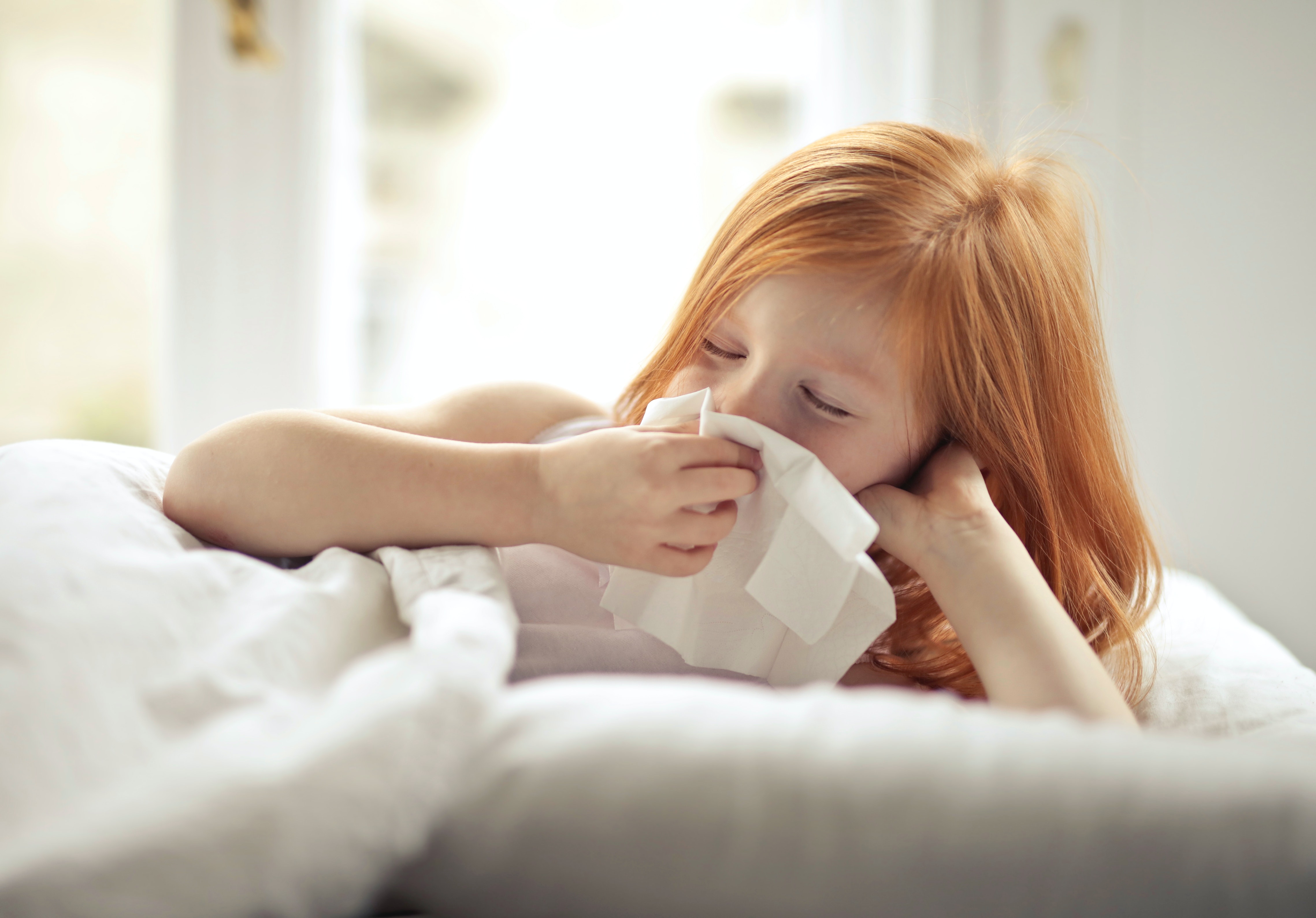Allergies
What is an allergy
According to Allergy UK, an allergy is the response of the body’s immune system to normally harmless substances, such as pollens, foods, and house dust mite. In most people these substances (allergens) cause no problem, in allergic people their immune system sees them as a ‘threat’ and produces a negative reaction.
This can be relatively minor, such as itching, but in more severe cases it cause anaphylaxis, a condition which can lead to obstruction of airways and collapse and can be fatal
Why does my child have an allergy ?
Allergies are very common. They’re thought to affect more than 1 in 4 people in the UK at some point in their lives. They’re particularly common in children.
Will my child always have an allergy?
Some allergies go away as a child gets older, although many are lifelong.
Common symptoms of an allergic reaction include
- sneezing and an itchy, runny or blocked nose (allergic rhinitis or hayfever)
- itchy, red, watering eyes (conjunctivitis)
- wheezing, chest tightness, shortness of breath and a cough
- a raised, itchy, red rash (hives)
- swollen lips, tongue, eyes or face
- tummy pain, feeling sick, vomiting or diarrhoea
- dry, red and cracked skin
- burning and itching due to stings from insects like wasps and bees

What happens when you have an allergic reaction
When a person comes into contact with the thing (the allergen) they are allergic to, a reaction occurs. This begins when the allergen (for example, pollen) enters the body, triggering an antibody (a protein produced by the body in response to something the body thinks is foreign) response.
When the allergen comes into contact with the antibodies, these cells respond by releasing certain substances, one of which is called histamine. These substances cause swelling, inflammation and itching of the surrounding tissues, which is extremely irritating and uncomfortable.
Allergic reactions usually happen quickly within a few minutes of exposure to an allergen.
More information around allergies can be found here.
When should I worry?
If your child has any of the following:
- Tightness in the chest or throat
- Swelling of the mouth, face, tongue, lips or throat
- Difficulty swallowing or speaking
- Hoarse voice
- Harsh noise as they breathe in (stridor)
- Wheezing
- Persistent coughing
- Has laboured, rapid breathing or they are working hard to breathe, drawing in of the muscles below their lower ribs, at their neck or between their ribs (recession)
- Dizziness, fainting episode or collapse
- Pale or floppy
You need urgent help.
Go to the nearest Hospital Emergency (A&E) Department or phone 999
If your child has any of the following:
- Runny nose or eyes
- Itchy skin or a raised rash (hives)
- Tingling mouth
- Sneezing
Contact your pharmacist.
If these symptoms do not improve with over the counter treatments from the pharmacy, contact your GP.
If your child has any of the following:
- Runny nose or eyes
- Itchy skin or rasied rash (hives)
- Tingling mouth
- Sneezing
Self care
Continue providing your child’s care at home. You can speak to your local pharmacist for advice.
The most common causes of allergic reactions are
- Pollen from trees and grasses
- Proteins secreted from house dust mites
- Moulds
- Foods such as peanuts, tree nuts, milk and eggs
- Pets such as cats and dogs, and other furry or hairy animals such as horses, rabbits and guinea pigs
- Insects such as wasps and bees
- Medicines (these may cause reactions by binding to proteins in the blood, which then trigger the reaction).
Who can help
Speak to your local pharmacist. They can give advice and suggest the best treatments, like antihistamine drops, tablets or nasal sprays. You can get medicines delivered or ask someone to collect them.
Contact your GP or ring 111 if:
- your symptoms are getting worse
- your symptoms do not improve after taking medicines from the pharmacy
- you may need to visist urgent care if you symtoms do not improve
Please visit these pages for more information on symtoms your child may have: Conjunctivitis, difficulty breathing and wheezing and rashes.
Itchy, sneezy, wheezy has a series of videos on food allergy, anaphylaxis and how to use an epipen
For wear and tear, minor trips and everything in between.
Self-care
You can treat your child's very minor illnesses and injuries at home.
Some illnesses can be treated in your own home with support and advice from the services listed when required, using the recommended medicines and getting plenty of rest.
Sound advice
Children can recover from illness quickly but also can become more poorly quickly; it is important to seek further advice if a child's condition gets worse.
For information on common childhood illnesses go to What is wrong with my child?
Pharmacists are experts in many aspects of healthcare and can offer advice on a wide range of long-term conditions and common illnesses such as coughs, colds and stomach upsets. You don’t need an appointment and many have private consultation areas, so they are a good first port of call. Your pharmacist will say if you need further medical attention.
Sound advice
- Visit a pharmacy if your child is ill, but does not need to see a GP.
- Remember that if your child's condition gets worse, you should seek further medical advice immediately.
- Help your child to understand - watch this video with them about going to the pharmacy.
For information on common childhood illnesses go to What is wrong with my child?
Health visitors are nurses or midwives who are passionate about promoting healthy lifestyles and preventing illness through the delivery of the Healthy Child Programme. They work with you through your pregnancy up until your child is ready to start school.
Health Visitors can also make referrals for you to other health professionals for example hearing or vision concerns or to the Community Paediatricians or to the child and adolescent mental health services.
Contact them by phoning your Health Visitor Team or local Children’s Centre.
Sound advice
Health visitors also provide advice, support and guidance in caring for your child, including:
- Breastfeeding, weaning and healthy eating
- Exercise, hygiene and safety
- Your child’s growth and development
- Emotional health and wellbeing, including postnatal depression
- Safety in the home
- Stopping smoking
- Contraception and sexual health
- Sleep and behaviour management (including temper tantrums!)
- Toilet training
- Minor illnesses
For more information watch the video: What does a health visitor do?
School nurses care for children and young people, aged 5-19, and their families, to ensure their health needs are supported within their school and community. They work closely with education staff and other agencies to support parents, carers and the children and young people, with physical and/or emotional health needs.
Contacting the School Nurse
Primary and secondary schools have an allocated school nurse – telephone your child’s school to ask for the contact details of your named school nurse.
There is also a specialist nurse who works with families who choose to educate their children at home.
Sound Advice
Before your child starts school your health visitor will meet with the school nursing team to transfer their care to the school nursing service. The school nursing team consists of a school nursing lead, specialist public health practitioners and school health staff nurses.
They all have a role in preventing disease and promoting health and wellbeing, by:-
- encouraging healthier lifestyles
- offering immunisations
- giving information, advice and support to children, young people and their families
- supporting children with complex health needs
Each member of the team has links with many other professionals who also work with children including community paediatricians, child and adolescent mental health teams, health visitors and speech and language therapists. The school health nursing service also forms part of the multi-agency services for children, young people and families where there are child protection or safeguarding issues.
GPs assess, treat and manage a whole range of health problems. They also provide health education, give vaccinations and carry out simple surgical procedures. Your GP will arrange a referral to a hospital specialist should you need it.
Sound advice
You have a choice of service:
- Doctors/GPs can treat many illnesses that do not warrant a visit to A&E.
- Help your child to understand – watch this video with them about visiting the GP or going to a walk in centre
For information on common childhood illnesses go to What is wrong with my child?
If you’re not sure which NHS service you need, call 111. An adviser will ask you questions to assess your symptoms and then give you the advice you need, or direct you straightaway to the best service for you in your area.
Sound advice
Use NHS 111 if you are unsure what to do next, have any questions about a condition or treatment or require information about local health services.
For information on common childhood illnesses go to What is wrong with my child?
A&E departments provide vital care for life-threatening emergencies, such as loss of consciousness, suspected heart attacks, breathing difficulties, or severe bleeding that cannot be stopped. If you’re not sure it’s an emergency, call 111 for advice.


